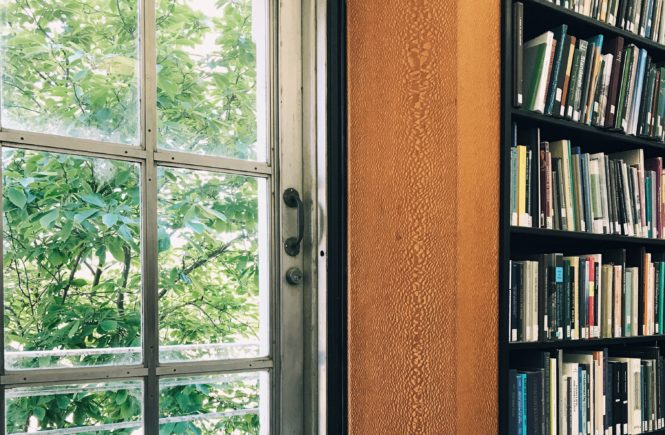an honest talk about mental health
Growing up in a culture that doesn’t prioritize mental health as an integral part of overall health, I never knew how to acknowledge my feelings, let alone process them. According to the American Journal of Public Health, Asian-Americans have an 18% lifetime rate or a 9% annual rate of having psychological disorders. However, they’re also three times less likely to seek mental health services. This statistic does not surprise me. Only through therapy did I come to realize the mental health struggles I faced not only recently, but throughout my childhood and adolescence. It was only when I reached a mental breaking point did realize I needed to seek help.
I have always been an emotional person and grew up having others tell me to “stiffen up.” Due to this, I have learned to suppress my feelings rather than acknowledge them. Because I was never taught how to process why I felt a certain way and what that feeling means, years and years of emotions stacked on top of one another inside of me. Stress from school, pressure from family, societal expectations from my peers, among other things, circled around me like a haze. I always thought that if I studied more, worked harder, did more, that it would all sort itself out. Everyone else around me seemed to have everything together, so why couldn’t I? Something I have learned recently in going to therapy is that if you don’t acknowledge your feelings they settle inside of you, taking up space emotionally and physically. It is exhausting to harbor so many years of mental fatigue within you.
I grew up with a wonderful childhood, but in a culture where checking up on someone’s mental health was taboo, I am now an adult that is unequipped to navigate these newfound hurdles. I don’t blame my parents for raising me the way that they did. After all, they did what they thought was best based on how they were raised. But I think it’s important to highlight the problematic nature of ignoring toxic habits. At family gatherings, it wasn’t uncommon to be bombarded with questions from relatives, such as how my love life was going, what my plans academically/professionally were, and how my choices were going to affect the entire family as if it really mattered how my choices were going to affect anyone other than myself. I grew up believing that putting my needs and feelings first was selfish; that I had to consider everyone else’s feelings and how my choices affected them before I considered how they affected me. Putting yourself first is not selfish! It is actually one of the most selfless things one can do. Now, I’m not saying you should disregard other people’s feelings or how you impact other’s lives. What I am saying is that you matter, how you feel matters, and that should be the priority before you worry about everyone else.
Something my therapist told me that I find so helpful is the concept of empty cups. You are the cup. You can’t pour out of an empty cup. I used to put myself on the bottom of my “to-do” list, push my needs aside and focus on everyone and everything else. This led to emotional fatigue and burnout. My body and mind were literally telling me that they couldn’t go on any longer in this way. It wasn’t sustainable. I wasn’t taking the time to listen to myself and what I needed. I was trying so hard to keep pouring into everyone else’s cups but never realizing my cup was empty. And what does that mean? I wasn’t giving people my best; I wasn’t being a quality friend, student, coworker, etc. Why? Because I wasn’t taking care of myself. You can’t invest in others properly if you don’t invest in yourself first. I was pushing myself past my limits because I compared myself to everyone else and how they were functioning. There are people who can do so much more, who are doing so much more, and I felt guilty for not measuring up to their abilities. But I’m not them! And that’s okay! And my limits are different! And that’s also okay! It’s still not easy. I have a whole lifetime of establishing my value and self-worth through success, of being a “yes” person, a people pleaser. I have a very “black and white” and “all or nothing” mindset. If I’m not working toward my end goal then I’m ultimately a failure. Things either have to be exactly as I imagine it or it’s not worth it. And this is toxic thinking because nothing in life is defined by these polarities. There is room for some middle ground, some grey area. I am uncomfortable in this middle grey area. I have no idea how to exist in it. But I’m learning. Here’s a list of things I’ve been learning and practicing through therapy:
- It is okay to say “No.”
- It is healthy to establish boundaries. You’re not rude, mean, or selfish for doing this. If you’re uncomfortable, voice that. If you don’t want to do something, voice that. Listen to yourself and what you’re comfortable with. You deserve to acknowledge and honor what you are comfortable with, no ifs, ands, or buts.
- Guilt is a feeling that is self-inflicted. You do not have to feel guilty about something you have no control over or no responsibility in. (But also remember that guilt is usually associated with caring. If you feel guilty you probably care a lot about something/someone.)
- Healing is not linear. It’s messy, with twists, turns, and detours. And it usually doesn’t feel good. You have to face a lot of uncomfortable things that you’ve probably been avoiding. But face them. Tackle them head-on. It will feel better once you do, but it’ll feel like absolute shit while you’re doing it.
- Mental health is not an excuse. Yes, it is hard. Yes, sometimes you want to crawl into a hole and never come out. But mental health is not an excuse to treat people poorly. Communicate with your loved ones, friends, and peers. (This goes back to establishing boundaries.) If you made plans with a friend and suddenly just don’t feel up to it, tell them! Let’s normalize talking about how we feel. Tell your friend you need some time and space to process.
- Nobody can help you if you don’t reach out for help. And it is okay and healthy to ask for help. You are not weak, less successful, or incompetent for asking for help. We all need assistance sometimes. But nobody can help you if you do not vocalize what your struggles are.
As someone who grew up not knowing that mental health is just as important as our physical health, I will be the first to admit the process of acknowledging my feelings and struggles is not easy. It is so hard to be vulnerable because that opens you up to judgement. And judgement hurts. But I want to live in a world were people are kind and understanding. And if I have children someday, I want them to know that their feelings are valid and healthy. In order to do that, I have to acknowledge how I process my feelings and make efforts and changes towards that goal. So let’s normalize talking about our feelings, especially in POC/AAPI cultures. You may have grown up in a culture where minimizing your mental health was normal. But it doesn’t have to be. And we can change that and it starts with ourselves.
On Being Sensitive, Weakness, & “Feeling Too Much” – Reality of being a Highly Sensitive Person
To him
a touch is a blow,
a sound is a noise,
a misfortune is a tragedy,
a joy is an ecstasy,
a friend is a lover,
a lover is a god,
and failure is death.
– Pearl Buck
There is a stigma that people who are emotional, highly sensitive, or “feel too much” are inherently weak. I would argue that these people are among the strongest individuals to exist. In fact, approximately 20% of the population is highly sensitive.
As an emotional empath and highly sensitive person (HSP) myself, I have struggled with the criticism of being overly emotional my entire life. Growing up, my teachers told me I needed to engage more and stop letting little nuances affect me. Now as an adult, I often find myself sobbing at the slightest bit of confrontation, and most of all, I have and continue to struggle with not making other people’s problems my problems. I was sure that others had to feel everything as deeply as I do, but I was only trying to comfort myself from the reality that not everyone is similar, and perhaps I am part of the minority.
I feel everything. It isn’t something that I choose or want for myself. I can never “turn it off” as if I have control over it. Emotions overcome me like tsunamis; everything is calm, and the next minute I’m harboring my feelings, other people’s feelings, and the world around me as I take it all in.
However, it was only recently that I made this discovery about myself and I can say that it is both a blessing and a curse.
Reflecting on my childhood and recalling specific moments that have strongly impacted me, it is now clear that I have exhibited signs of being an empath and HSP from an early age.
According to the Highly Sensitive Person Foundation, some of the characteristics of an HSP are:
- Being easily overwhelmed by stimuli, such as lights, scents, and rough fabrics
- Becoming anxious when having a lot to do in a little amount of time
- Avoiding violence in the media, such as movies, TV shows, and the news
- Needing to retreat to a quiet, dark, and/or private place during particularly busy days
- Prioritize the avoidance of distressing or overwhelming situations
- Notice and/or enjoy subtle or delicate scents, sounds, or art
- Having a rich and vibrant inner life
- As a child, was often viewed as sensitive or shy by parents, teachers, or other adults
Now, no list is all-inclusive, but when reading the above points for the first time, I couldn’t help but nod furiously and think “Yes, I can relate to all of them!” For the first time in my life, I finally felt understood.
Growing up is already a confusing and challenging experience, but on top of it all, I had to deal with my excess of emotions while trying to figure out where my place in this world was. I would be lying if I said I currently have it all sorted out and know where I belong. What I have realized, however, is that, like most things in life, every aspect that makes being an HSP difficult also comes with some wonderful rewards. In my particular case, the positives overpower the negatives and make it all worth it.
One of the more prominent aspects of being an HSP is having strong responses toward stimuli; as a result, crying and tears aren’t unusual. A common example is that I often find myself crying at dog commercials regardless if they’re meant to be sad, and the mood resulting from it follows me throughout the day. On the other hand in feeling negative things deeply, I also feel positive things deeply. The simple or trivial pleasures of life regularly bring me joy. Stepping on a crunchy autumn leaf, listening to my favorite song, or having someone smile at me are acts that can instantly make my day.
“You are not weak just because your heart feels so heavy.”
–Andrea Gibson // “The Nutritionist”
HSPs are often known to be well-versed and valuable when it comes to advice giving. Lending a shoulder to cry on or an ear to listen repeatedly make them the preferred person in friend groups or social circles to help deal with other’s conflicts. This is due to the highly empathetic and compassionate nature HSPs have. In addition to being wonderful listeners and attuned in guidance, HSPs tend to be naturally giving, due to their ability to pick up on other’s emotions and see things from their point of view.
I know these things to be true for me personally. Within in my social circle, I am often deemed “the mom” and am the first person my peers consult when seeking advice. It’s a wonderful thing to have my input valued, but it does become emotionally tiring to constantly have my attention demanded. I’ve even been in situations where complete strangers have found my demeanor comforting and have “dumped” their problems on me before leaving never to be seen again. And of course, I find it extremely difficult to say no when asked to lend a helping hand to those who ask.
This has been a source of guilt for me throughout the years. I know that I have to prioritize my own health and well-being, but the thought of denying a friend or loved-one comfort in a time of need makes my heart ache. But here’s what I’ve realized: you can still provide support to those you love without compromising your mental health. I used to think that in order to be there for someone, I had to sacrifice all of my emotions until I felt drained; filling them up with all I had until there was nothing left for myself.
It is common for empaths and HSPs to be exploited by others around them. To others, our caring nature is inviting, and our desire to please others makes us perfect targets for this emotional manipulation.
“I care. I care a lot. It’s kind of my thing.”
–Leslie Knope // “Parks and Recreation”
In a society where outgoing, highly productive individuals are viewed as the only type of people who can be successful, it comes as no surprise that HSPs (and introverts alike) often feel incompetent or useless in response to their resilient peers, which makes it difficult for them to fit into society. While being outgoing and highly productive are great qualities to have when entering the workforce, it is important to note that HSPs also have their strengths.
According to Elaine N. Aron, Ph.D, in her book The Highly Sensitive Person, she notes that HSPs are needed in the top tiers of an organization, as well as society as a whole, in order to help prevent the abuse of power and force, while also providing their intuition in decision making, rather than relying on impulse alone.
“Sensitive people suffer more, but they love more and dream more.”
– Agusto Cury
Our retrospective and quiet nature have some benefits. While everyone else is so go, go, go with their lives, HSPs, due to their need to recharge and process what happens around them, have more opportunities to express compassion and leave their heads up in the clouds.
While being a highly sensitive person in a world that prioritizes the energetic and aggressively enterprising can be a tiresome and daunting experience, it is important to remember that everyone has a role to fulfill in this world. Whether you are a fellow HSP (hi!) or fall somewhere else on the sensitivity spectrum, we all are important, which is the most influential point I can make in this post.
*Author’s note:
Writing this piece has been such a challenge for me personally; this “passion-piece” as I like to call it, has been a work in progress for over a year. I wanted the information I shared to be accurate and reliable, while also maintaining a sense of tenderness without losing credibility. As a highly sensitive person, it is difficult for me to share my feelings, but I knew that it would help me (and hopefully others) grow as an individual, as well as gain confidence in being deemed “weak” throughout my life. In researching this article I have learned so much about being sensitive and how I function in this world. Most importantly I have realized that being overly sensitive is OK, and at times even beneficial. Thank you for taking the time to read this personal piece of my life!
What’s in My Name?
I was named after my parents. Yes, my parents thought it would be clever to name their last offspring, a combination of their single halves to create a whole, after themselves. Edinette. The first half comes from my father, Edgar, Eddie, Ed, he goes by so many names. The latter from my mother Nenita. Growing up, it was never a question whose child I was, for it was literally in my name. What’s in my name? From the first half of my father, I got his tenacity and strong will; from my mother’s latter half, her kind heart and Seussian imagination, though she has not read much of Dr. Seuss. My father is stubborn, but his name did not give me that. My mother is overbearing, but her name made me compassionate instead. My name has horrible dance moves, never able to stay on beat as it rolls off your tongue. It always wants to go by its own tempo and march to its own drum. Sometimes it wants to be long, Ee-din-et. Sometimes it wants to be snappy, Ed-net. Usually, it wants to skip and hop, Ed-in-et, which is how I prefer it. When meeting people for the first time, long Edinette and snappy Edinette make their appearance, though skip and hop Edinette does not show up until much later. I understand, I am like that, too, a little shy to reveal myself. It is intimidating to hear my name and it not be my name. It rolls off someone’s tongue but it is not familiar, it is not a name I would respond to. Instead, long Edinette and snappy Edinette come out front and center, entertaining an audience with a façade. My name has no meaning; it does not mean strength or hope. It does not mean innocence or grace. Its meaning is that I may assign significance to it however I choose. Edinette means wonder and whimsy, as I am in constant pursuit of something fascinating. If it were a color it would be aqua; blue but not sad-blue, more ocean-blue, which is ironic because I have a fear of drowning. Edinette is that still period between slumber and consciousness where it feels like you are floating in bed. My name would be curled up on the couch with a cup of tea on a beautiful day because although my name seems bold and daring, it prefers to live simply. But if I could have an alter ego, I would name myself Lulu. Not short for Louise or Lourdes. Lulu. Who is bold and French, strong like coffee.

LDN – A Poem
Lovely are your streets, where Wordsworth & Woolf roamed,
Deep within the underground does history flow,
Near every corner hides a bistro or café,
London, what a city, I wish I could stay.
Down every alley, and through every park,
Nestled between buildings lies the reason I wanted to start
Living in this city that I’ve loved deeply in my heart.
Dreaming of whimsy that this city holds,
Never did I imagine the beauty to unfold.
Luckily for me, did I get three months, to
Discover some of the secrets hidden within.
Now as my time in this city comes to an end,
London, what a city, I hope we meet again.
e.d. 2016
I fell in love with a city I knew I’d have to leave. Here’s what I’ve learned.
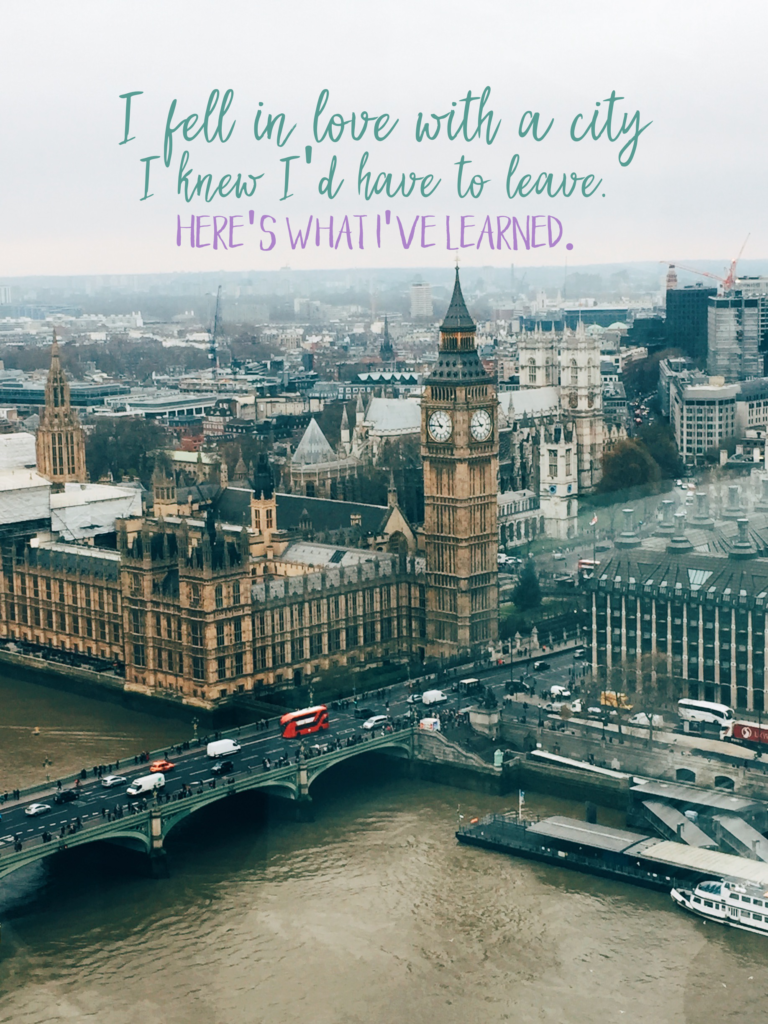
It is not without a heavy heart that I had to say goodbye to London & the little piece of myself I left behind.
My journey to London was by no means an easy one, but one driven by impulse & desire. I knew years ago that London would be the city for me, which sounds completely insane. All prior knowledge I had of the city came from films such as Notting Hill & Love Actually. But the opportunity to study abroad in the city I coveted to be in presented itself. So, naturally, one day after class I filled out the application & paid the deposit without telling anyone, hoping that everything would sort itself out in the end.
Fast forward a few months, after convincing my parents & dealing with all the technical travel bits, I stood in line at SFO security with puffy eyes & a blotchy face, a weepy mess of emotions. I have never cried so much before in my life, having to say goodbye to every familiar thing I’ve come to know in my twenty-one years of existence. Eventually, I made it through TSA looking like someone who was not in any way prepared to embark on a three-month-long escapade in a foreign country by herself.
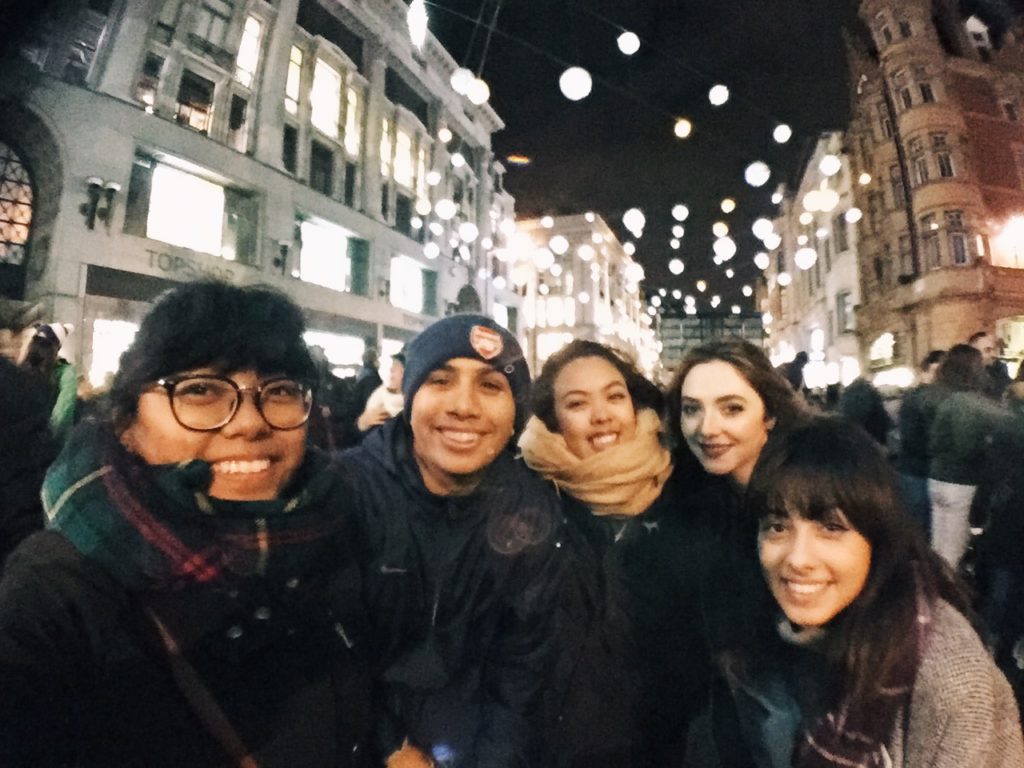
Going into the program, I had a lot of reservations:
- Would I get along with my roommate?
- Would I make friends?
- What if the “study” aspect of study abroad got too overwhelming?
- What if I spent all my weekends working on essays instead of seeing the sights?
- How would I fit into London life & culture?
Here’s the truth:
- I got along great with my roommate, but it was because of communication & compromise, like any other relationship. I got lucky & am so appreciative of her. (Mel, if you’re reading this, thanks for being a rockstar of a roomie! ♥)
- Making friends happened on its own. I found people who shared similar interests & wanted similar experiences. Don’t stress about it. You’ll make pals, I promise.
- School was actually one of my favorite parts of the program, which is good, considering it was the whole reason I went to London, to begin with. My professors were very understanding about culture shock & adjusting.
- Continuing from that, sometimes my essays actually required me to go out & see the sights. Ironic, isn’t it?
- With any new culture, I needed to assimilate. The first few weeks I was hyper-aware of how much I stood out. Eventually, I picked up on the lingo (pants are underwear, people!) & started picking up the accent. Soon tourists were asking me for directions.
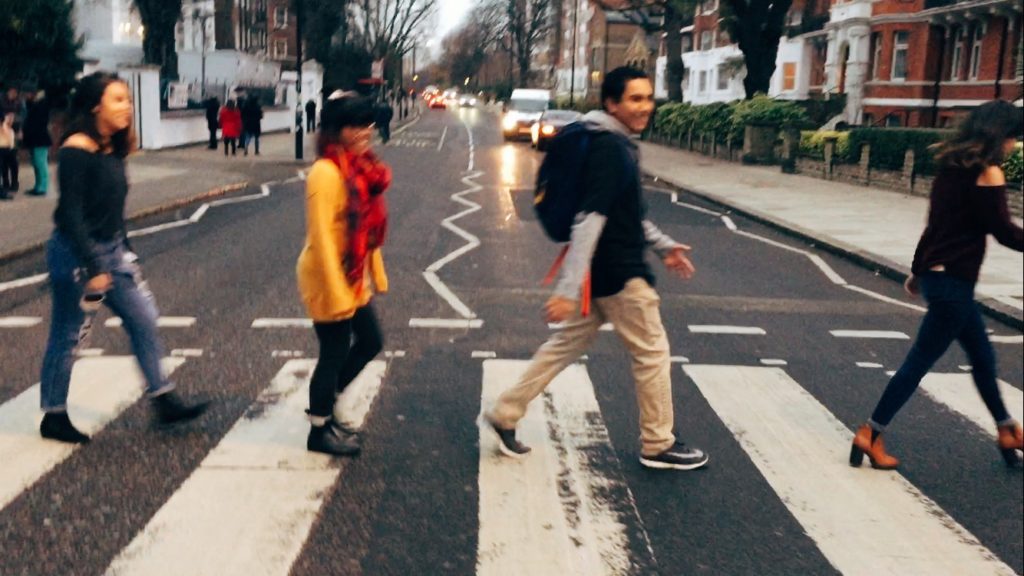

I made the grave mistake of falling in love with London, knowing I would have to leave. One of my best mates who’s off embarking on her own grand adventure told me that she knew I would love London & that I was “the most London-y person who isn’t actually from London at all.” I thought she was just making a funny joke, but little did I know, she was right.
I very quickly became smitten with the city & everything it had to offer. Just as fast as it came, the homesickness I felt diminished because I realized that London is home. It was scary how easily I adjusted to London life. I soon established my daily routine; taking the Piccadilly line to school, getting a tea (sometimes on the house!) from João at Pret a Manger before class, stopping by the AIFS office to say hello to everyone, & exploring the city once my lessons were done.
Every day I walked through the city, every part that seemed mundane, I adored & could picture myself doing for the rest of my life. I looked forward to tapping my Oyster card to get onto the Tube, enjoyed walking from my flat to Waitrose to pick up some groceries, going to Paperchase to gawk over the stationery, & have proclaimed Nando’s to be my favorite restaurant of. all. time.
The three months I have spent in London has allowed me to experience more than I ever could have imagined. I have seen more theatrical performances than I can count (Shakespeare’s Globe productions, West End Musicals, & more!), watched a live football match, & have visited enough museums to make me a history & art expert – not really, but a gal can dream.

But that’s the sugar-coated part of it all. There were some cringe-worthy experiences & things I wish I did differently.
It took me quite a while to learn that a one pence & two pence are not the same as a one pound & two pound coin. I confused a few till workers & held up a few queues my first few weeks, but eventually I figured it out. English currency is very coin heavy (get it? heavy!) but I appreciated using it opposed to swiping a card. I felt more confident being able to pay in exact change!
Sometimes I wish I took more photos. Since being back in the U.S., I often find myself reminiscing about everything I did in London, before realizing that I never took a photo of that place/thing/experience. You don’t have to take a million photos to remember your experiences. Looking back, I now know it would have been pointless to take a photo of that one food stall that I didn’t actually like in the first place. Sure, photos are great, but they only capture what is seen, not the emotions or feelings that come with the moment. I like to think I experienced London wholeheartedly & not through a phone screen. I may not have photos to look back on but I do have the feelings and memories which are far more important to me.
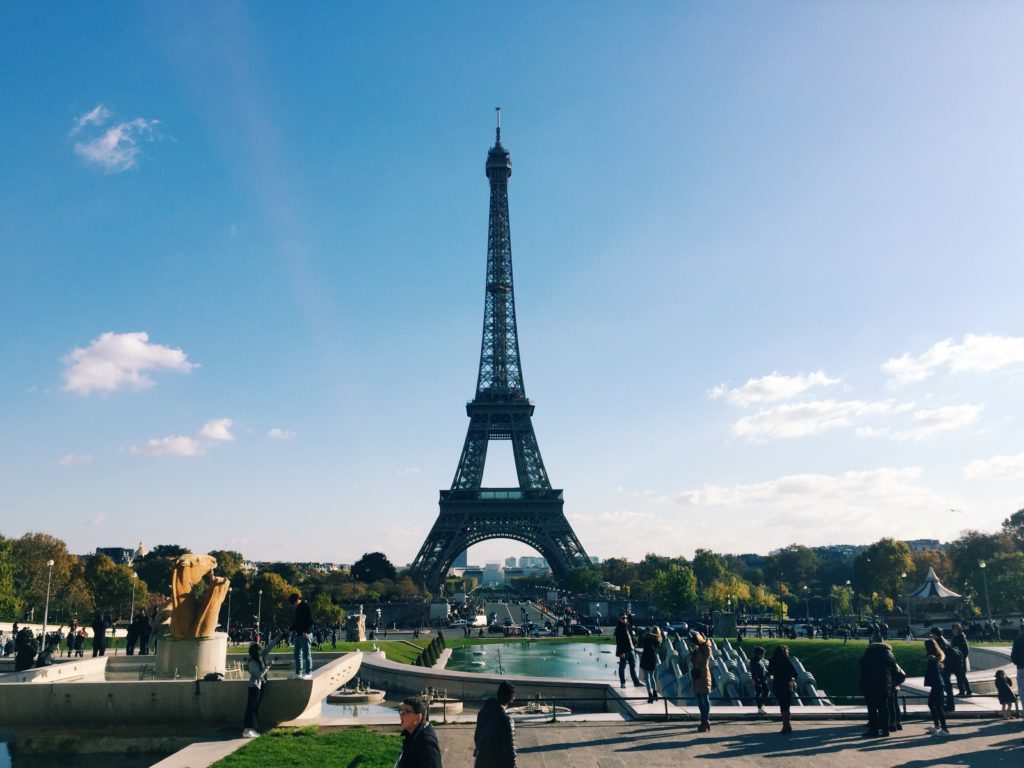
With Europe at my disposal & train travel so cheap, I wish I had visited a few more countries while I had the chance. The only other place I did go away for the weekend was Paris, France. It was a trip that allowed me to cross a few things off my bucket list & I am so glad I decided to go. I also wanted to go to Amsterdam in the Netherlands but decided not to make a trip. I don’t beat myself up over it, though. Because each weekend I wasn’t traveling was spent in London, the city I chose to study abroad in, becoming more & more like a local.
I made lists upon lists of little bookshops & markets I wanted to visit. I wish I actually went somewhere new each day instead of going to the same places over & over. Don’t get me wrong, being recognized at a cafe for being a regular feels amazing, but I found that I ended up in the same part of town each weekend, doing similar things. I managed to cross a few of the markets I wanted to see & got through a majority of the touristy bits I wanted to do, but there is still a lot that I never got around to, such as seeing the Peter Pan statue in Hyde Park (I have been to Hyde Park twice & passed it even more times). I guess this means I have to go back!
In the short time I have spent in London, the city has completely stolen a piece of my ♥, for which I am so grateful for. Three months ago I stood in line at the airport sobbing, after saying goodbye to my parents, thinking that was the most I have ever cried in my entire life & the hardest thing I’d ever have do. I was wrong. Leaving London has been the hardest thing I have had to do. I love my parents immensely, but having to bid farewell to my friends that have made London feel like home, the AIFS advisors that made each day easier, & the city that had infatuated me was overwhelmingly difficult.
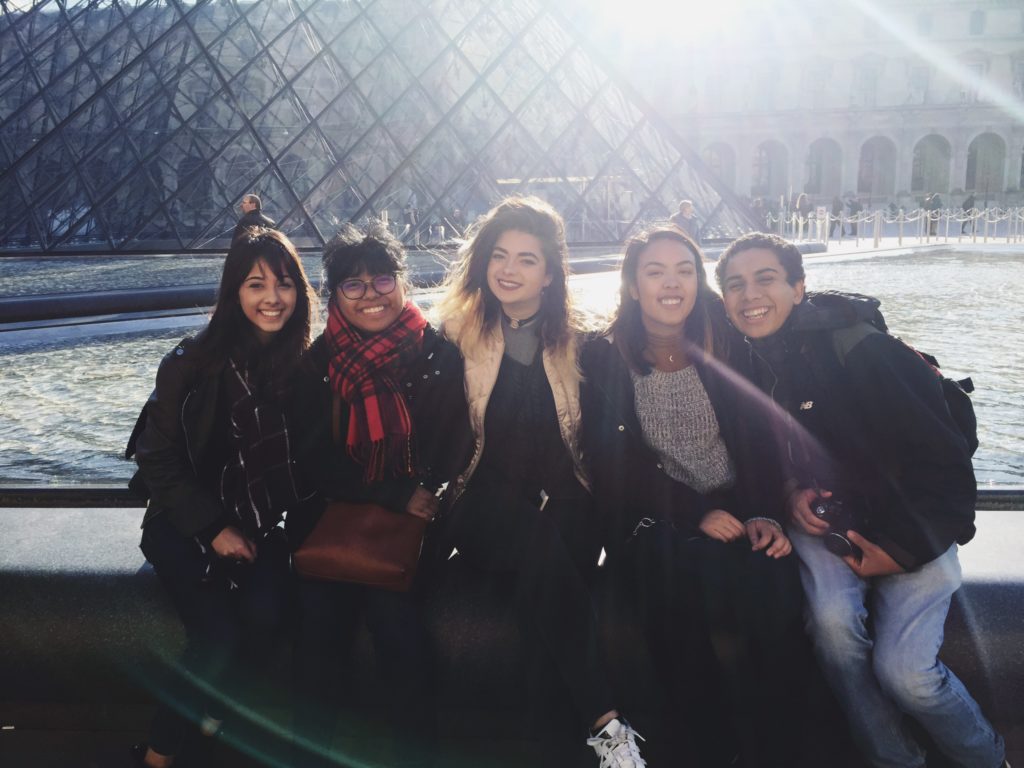
Standing outside in the cold at 6 A.M. on a Friday, I cried the hardest I have ever cried, saying goodbye to friends before boarding a coach en route to Heathrow airport. There’s a quote I love from one of my favorite books that goes “It is so hard to leave—until you leave. And then it is the easiest goddamned thing in the world.” In comparison, leaving my family was a much easier thing to do because I knew I would be back. However, leaving London was not that easy. At this point in time, it is uncertain if I will visit London again, which is what made parting so difficult. On the coach ride to the airport, I continued to cry whilst gazing out the window, never knowing if it would be the last time I’d pass a Tesco or see a phone booth, trying to absorb it all in the event it would be my last.
London has enchanted me in ways I couldn’t have expected. I have grown tremendously as a person because of it all. Cheers to all of the tea I drank, the few people who returned a smile on the tube, & Bus 49 to White City for making the past three months incredible in ways I cannot put into words.
I am not certain about a lot of things in life, such as pedestrian safety in England, but I know I’m not done with London, nor is the city done with me, & one day I will go back, perhaps to never leave, regaining that little piece I left behind, finally whole in the city that is home.
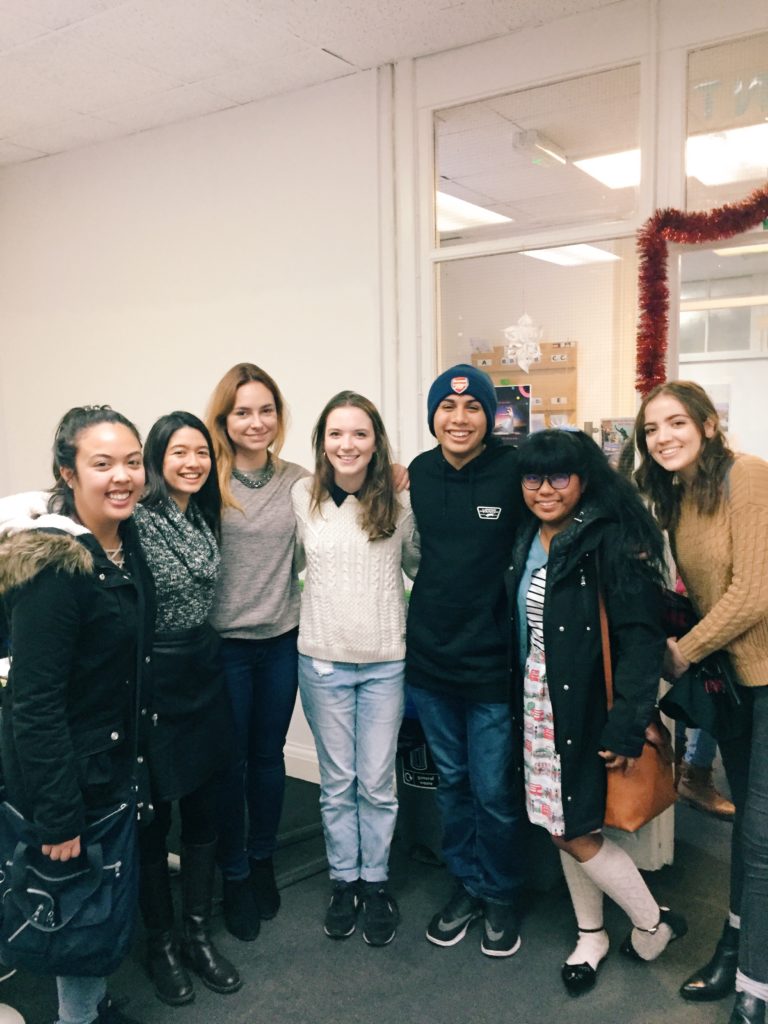
Edinette x
No One Belongs Here More Than You
6/13/2016
No one belongs here more than you
No one belongs here more than
you. There are stars in your eyes
that make constellations as bold
as Orion and as beautiful as
Andromeda. The passion which
flows through your veins is as
strong as the ocean’s current and
the wonder in your soul fuels
the fire in your heart.
No one belongs here more than you.
There is kindness which radiates
from your smile and honesty
that tumbles from your words softly
spoken.
No one belongs here more than you.
There is sincerity in your touch
and authenticity in your thoughts.
Love emanates from your being.
No one belongs here more than you
Because there is no one else
like you that adds beauty to this
world.
e.d.
I use to hate writing…& then I became a writer.
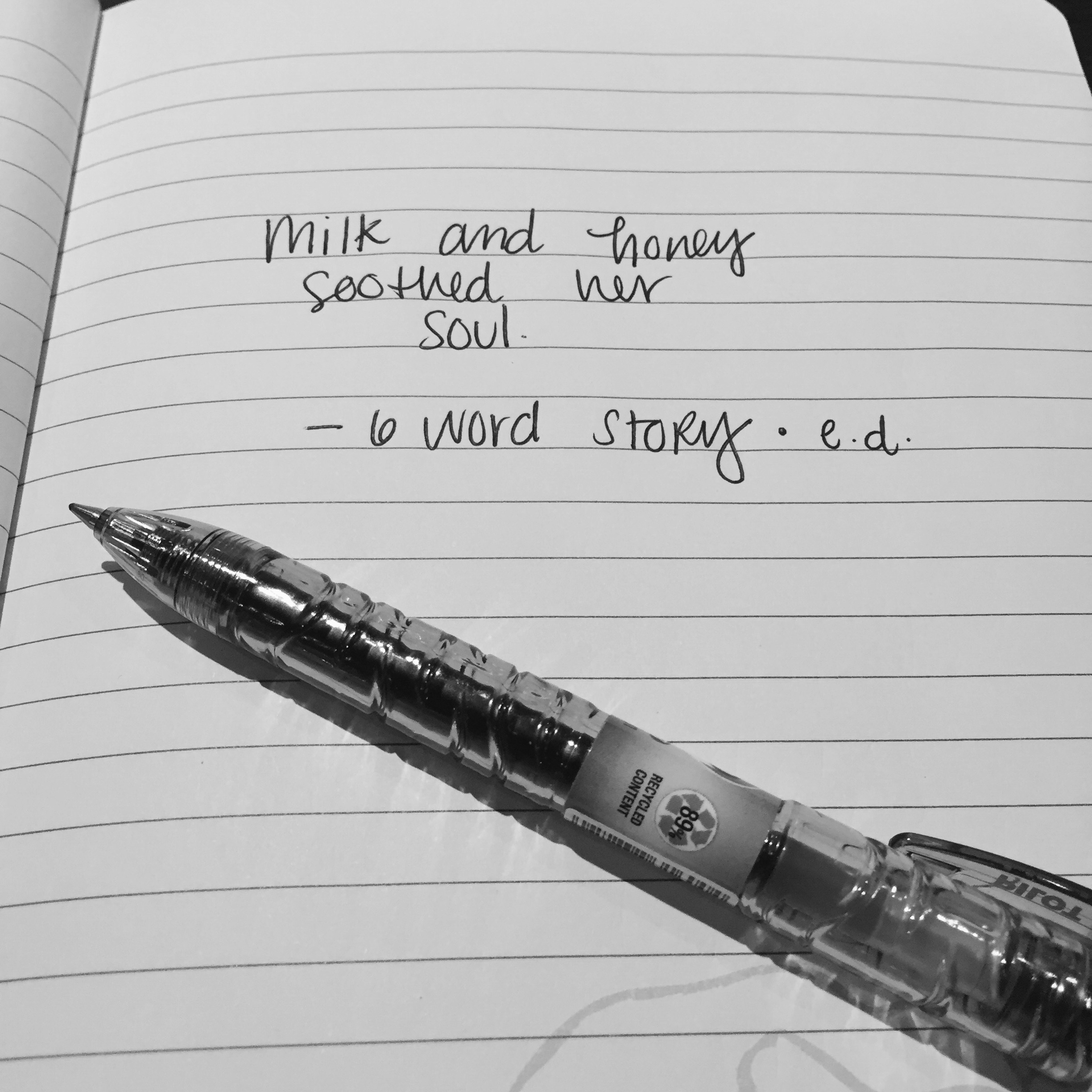 I use to loath writing in all of its forms. Essays for class, messages inside of greeting cards, & even the very tweets about my trivial life in 160 characters or less.
I use to loath writing in all of its forms. Essays for class, messages inside of greeting cards, & even the very tweets about my trivial life in 160 characters or less.
I never saw the point, if I’m being completely honest. I never thought I needed to put to paper what I had in my head. But here’s the thing… eventually my headspace got overwhelmingly crowded & I realized that jotting things down was a great way to alleviate some of the stress.
When I was diagnosed with anxiety I wasn’t sure how to cope. It felt like the constant chaos inside of my noggin was there to stay. Worrying about what I needed to get done, remembering to buy milk, making sure I knew the formula for the math test…suppressing all of my feelings about all the craziness of life in general.
I turned to reading to help cope with my anxiety. I found comfort in the words of others, especially when they were able to articulate how I was feeling. This came up in passing with my therapist, and she asked the million dollar question: “Why don’t you try to write?”

 (@ldnwandering)
(@ldnwandering)
